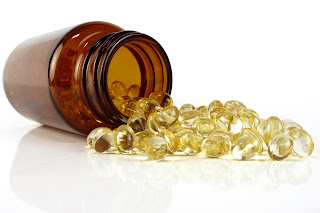The NY Times this week ran a story under the headline “Am I Getting Enough Vitamin D During the Winter?” I’ll give you one guess how they answered that one.
Yes, the days are at their shortest right now. (The shortest day of the year will be Wednesday, December 21.) And yes, your body synthesizes vitamin D when you’re out in the sun, so you make less of it this time of year.
You also get vitamin D from a variety of foods. The Times story quoted a skin cancer expert from NYU School of Medicine, Dr. Deborah Sarnoff from, who said “you don’t need to get it [vitamin D] from sunshine.”
So you don’t need to run out and take vitamin D supplements. as I pointed out emphatically in a column I wrote back in August, and in several earlier columns too. Scientists have conducted multiple major studies of vitamin D supplements, as I wrote before, and those studies–involving thousands of subjects and running for many years–showed that
- Vitamin D supplements do not improve bone density, and they do not reduce the risk of osteoporosis.
- Vitamin D supplements don’t prevent heart disease, weight gain, mood disorders, multiple sclerosis, or metabolic disorders.
- Vitamin D supplements (in the most recent study, involving 26,000 men and women followed for more than five years) don’t do anything to prevent bone fractures.
But the NY Times reporter (Rachel Peachman) really wanted to recommend supplements, it appears. She apparently wasn’t able to get a doctor to say that, so instead she quoted a dietitian nutritionist, who provided the quote, saying “Especially as we’re entering the winter months, most people would benefit from taking a supplement.”
Not surprisingly, the Times doesn’t quote an actual study that supports this recommendation, because that’s not what the science says. (To be fair, the dietitian also included some caveats, which are paraphrased in the article, including the point that “it’s difficult to suggest one blanket recommendation for everyone.”)
So no, NY Times, most people wouldn’t benefit from taking a supplement. As Drs. Steven Cummings and Clifford Rosen wrote last summer in the New England Journal of Medicine, “providers should stop screening for 25-hydroxyvitamin D levels or recommending vitamin D supplements, and people should stop taking vitamin D supplements to prevent major diseases or extend life.” And as five of my Hopkins colleagues wrote in a 2013 review in The Annals of Internal Medicine, “stop wasting money on vitamin and mineral supplements.” The science just doesn’t support it.
Cummings and Rosen also pointed out that more than 10 million blood tests for vitamin D levels are conducted in the US each year, with the vast, vast majority of these being unnecessary. These tests aren’t free, and our costly health care system doesn’t need the extra burden.
Finally, let me offer a caveat that I’ve written before: although routine supplementation is worthless and megadoses of vitamins can be harmful, if you think you have a vitamin deficiency, consult with your doctor. Serious vitamin deficiencies might be the result of other health problems that your doctor can help you address, and treatments for specific conditions or diseases may include vitamins.














